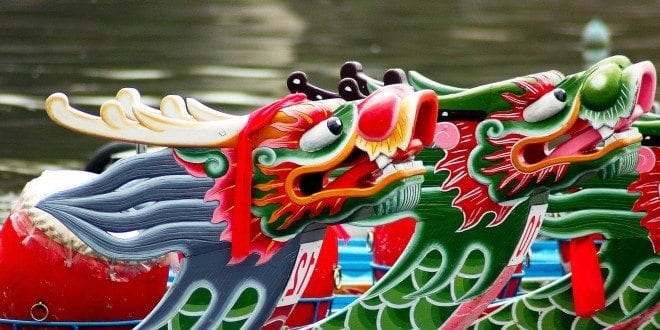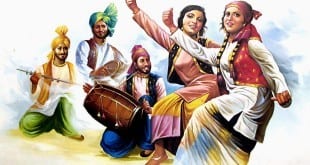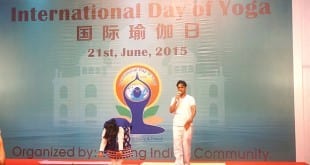Introduction
The Dragon Boat Festival, also often known as the Tuen Ng or Duanwu Festival(端午节), is a traditional and statutory holiday originating in China.

The sun is considered to be at its strongest around the time of summer solstice, as the daylight in the northern hemisphere is the longest. The sun, like the Chinese dragon, traditionally represents masculine energy, whereas the moon, like the phoenix, traditionally represents feminine energy. The summer solstice is considered the annual peak of male energy while the winter solstice, the longest night of the year, represents the annual peak of feminine energy. The masculine image of the dragon was thus naturally associated with Duanwu .
Name
The usual English name for the holiday, “Dragon Boat Festival,” directly translates into two alternative Chinese names for the holiday, Lóngchuánjié and Lóngzhōujié.
The official Chinese name of the festival is 端午节 on the mainland and 端午節 on Taiwan, Hong Kong, and Macao. This is pronounced variously in different Chinese dialects. In Mandarin, it is romanized as Duānwǔjié on the mainland and Taiwan; in Cantonese, it is romanized as Tuen1 Ng5 Jit3 on Hong Kong and Tung1 Ng5 Jit3 on Macao. All of these names (lit. “Opening the Seventh”) refer to its original position as the first seventh-day (午日, Wǔrì) in the fifth month (五月, Wǔyuè) of the traditional Chinese calendar, which was also known as 午 (Wǔ). Both the People’s Republic and the Republic of China use “Dragon Boat Festival” as the official English translation of the holiday,[1][2] while Hong Kong calls it the “Tuen Ng Festival” and Macao calls it “Dragon Boat Festival (Tun Ng)” in English and Festividade do Barco-Dragão (Tung Ng) in Portuguese.
Among Malaysian, Singaporean, and Taiwanese Hokkien speakers, the festival is also known as the “Fifth Month Festival,” the “Fifth Day Festival,” and the “Dumpling Festival.” In Singapore, it is known in Malay as Pesta Perahu Naga and in Tamil as Nākak Kappal Pantayam (நாகக் கப்பல் பந்தயம்), both meaning “Dragon Boat Festival.”
In Indonesian, the festival is known as “Peh Cun”, which is derived from the Hokkien phrase 扒船 (Hokkien POJ: pê-tsûn; Hanyu Pinyin: bā chuán).
History
Qu Yuan

It is said that the local people, who admired him, raced out in their boats to save him or at least retrieve his body. This is said to have been the origin of dragon boat races. When his body could not be found, they dropped balls of sticky rice into the river so that the fish would eat them instead of Qu Yuan’s body. This is said to be the origin of zongzi.
Wu Zixu
Despite the modern popularity of the Qu Yuan origin theory, in the former territory of the state of Wu, the festival commemorated Wu Zixu (died 484 BC). Wu Zixu was a loyal advisor whose advice was ignored by the king to the detriment of the kingdom. Wu Zixu was forced to commit suicide by the king Fuchai, with his body thrown into the river on the fifth day of the fifth month. After his death, in places such as Suzhou, Wu Zixu is remembered during the Duanwu Festival to this day.
Cao E
The front of the Cao E Temple, facing east, toward Cao’e River, in Shangyu, Zhejiang, China.
Although Wu Zixu is commemorated in southeast Jiangsu and Qu Yuan elsewhere in China, much of Northeastern Zhejiang including the cities of Shaoxing, Ningbo and Zhoushan celebrates the memory of the young girl Cao E (曹娥, AD 130–143) instead. Cao E’s father Cao Xu (曹盱) was a shaman who presided over local ceremonies at Shangyu. In 143, while presiding over a ceremony commemorating Wu Zixu during the Duanwu Festival, Cao Xu accidentally fell into the Shun River. Cao E, in an act of filial piety, decided to find her father in the river, searching for three days trying to find him. After five days, she and her father were both found dead in the river from drowning. Eight years later, in 151, a temple was built in Shangyu dedicated to the memory of Cao E and her sacrifice for filial piety. The Shun River was renamed Cao’e River in her honour.
Back Note
As expats living in China, you may often find that most Chinese youngsters, sending messages such Wish you a happy Dragon Boat Festival, but to differ from the common belief though it is called a festival it is not a real festival it is basically a Martyr’s Day. So now, you have a reason to inform those pesky WeChatters looking for Hong Bao on we chat.
Program Sponsored by The Shunde Government.
The Shunde Government on May 1st 2015, to bring awareness of the Dragon Boat Festival Organised a Trip to foreigners in Shunde District of Foshan. There was a Dragon boat Display followed by Dargon boat race and visit to the Silk and Art Museum in Shunde. To read more about that Click Here

Scan this QR Code and Add us to your Home Page
This Website is Sponsored by Tentacles Soft
Add our WeChat Id : foshan-expats
Website: foshan-expats.cn
 Foshan Expats Self Help Forum for Foreigners
Foshan Expats Self Help Forum for Foreigners 




